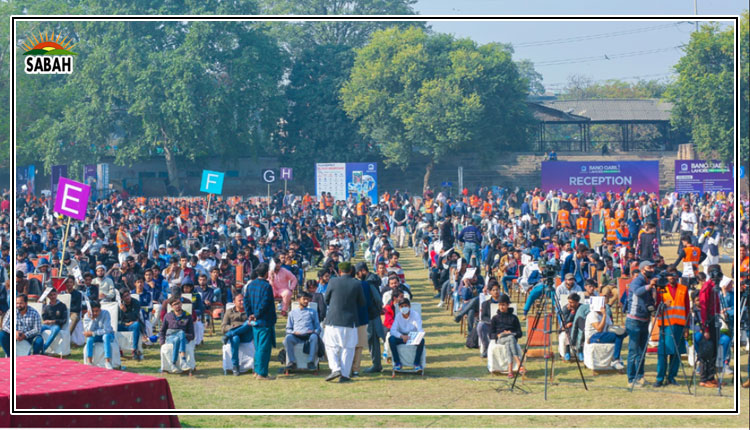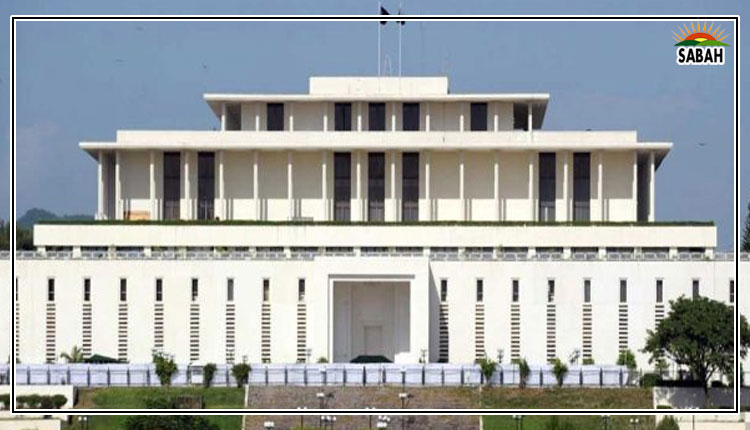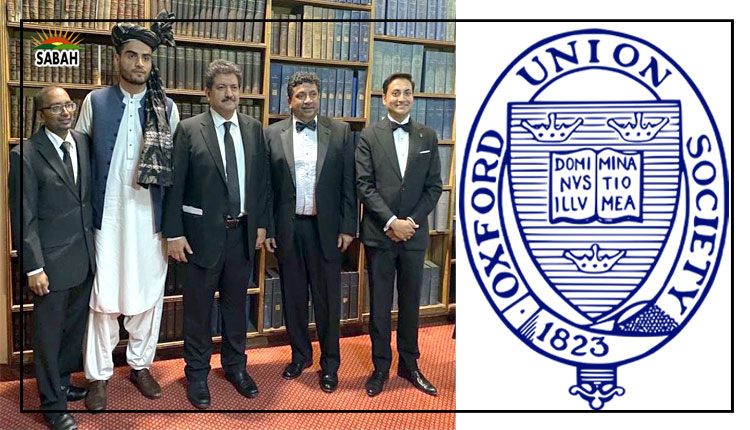Hamid Mir raises voice in support of detained Kashmiri journalist Fahad Shah
LONDON, June 03 (SABAH): The Oxford Union, one of world’s most prestigious student societies passed a motion after a comprehensive debate that British Raj lives on even after the 75 years of independence and ruling elites of Pakistan and India are still using old colonial laws to silence the voices of dissent. Prominent politicians, scholars and journalists from Pakistan, India and Bangladesh participated in this grand debate along with the students of Oxford University.
Prominent Pakistani journalist Hamid Mir made the last speech in support of the motion and Finance Minister of Indian State Tamil Nado Dr. Thiaga Rajan was among those who opposed the motion. Dr. Rajan never agreed with Hamid Mir and said that British Raj is now dead but after a counting of the votes in the house the motion was passed.
Hamid Mir said that governments in Pakistan, India and Bangladesh are still using some old colonial laws which were imposed on subcontinent by British Raj in 1860. He said that section 144 and 124A of the criminal procedure code were introduced in 1860 and not removed in last 75 years. He gave many examples of old colonial laws still operational in subcontinent. He said former Pakistani prime minister Imran Khan was booked in many cases under section 144 last week and this section was used by General Dyer in 1919 in Jalianwalla Bagh Amritsar. He mentioned the name of Pakistani parliamentarian Ali Wazir and Kashmiri journalist Fahad Shah who are behind the bars and facing sedition charges under section 124A.
Hamid Mir said Kashmir dispute is also a legacy of British Raj. Today Indian government is using old colonial laws to silence the voice of Kashmiris. He said that when he raise voice against the human rights violations in Kashmir some people in India declare him an agent of Pakistani intelligence and when he raise voice against enforced disappearances in Pakistan some people call him agent of Indian intelligence. He said this is a colonial mindset still ruling subcontinent.
He said that censorship in Pakistan and India was introduced by British Raj. He informed the house that Supreme Court of Pakistan directed in 2015 to adopt Urdu as the official language but even the Supreme Court itself failed to implement its order and still writing verdicts in English language because Pakistani courts practice English law. Hamid Mir emphasised that supremacy of English in Pakistan is the greatest legacy of British Raj. He quoted famous poet Faiz Ahmad Faiz in the end who also faced section 124A in 1951 and concluded that until unless Ali Wazir and Fahad Shah are not released and we don’t break the chains of old colonial laws the British Raj lives on. There were eight speakers in the panel. Five were from India, two from Pakistan and one from Bangladesh. Pakistani student Israr Khan from Quetta made a history in Oxford Union by delivering a speech in Pakistani dress Shalwar Kameez and a Pakhtun turban on his head. Oxford Union was founded in 1823 and first time a South Asian student was allowed to address the house with a turban on head.












